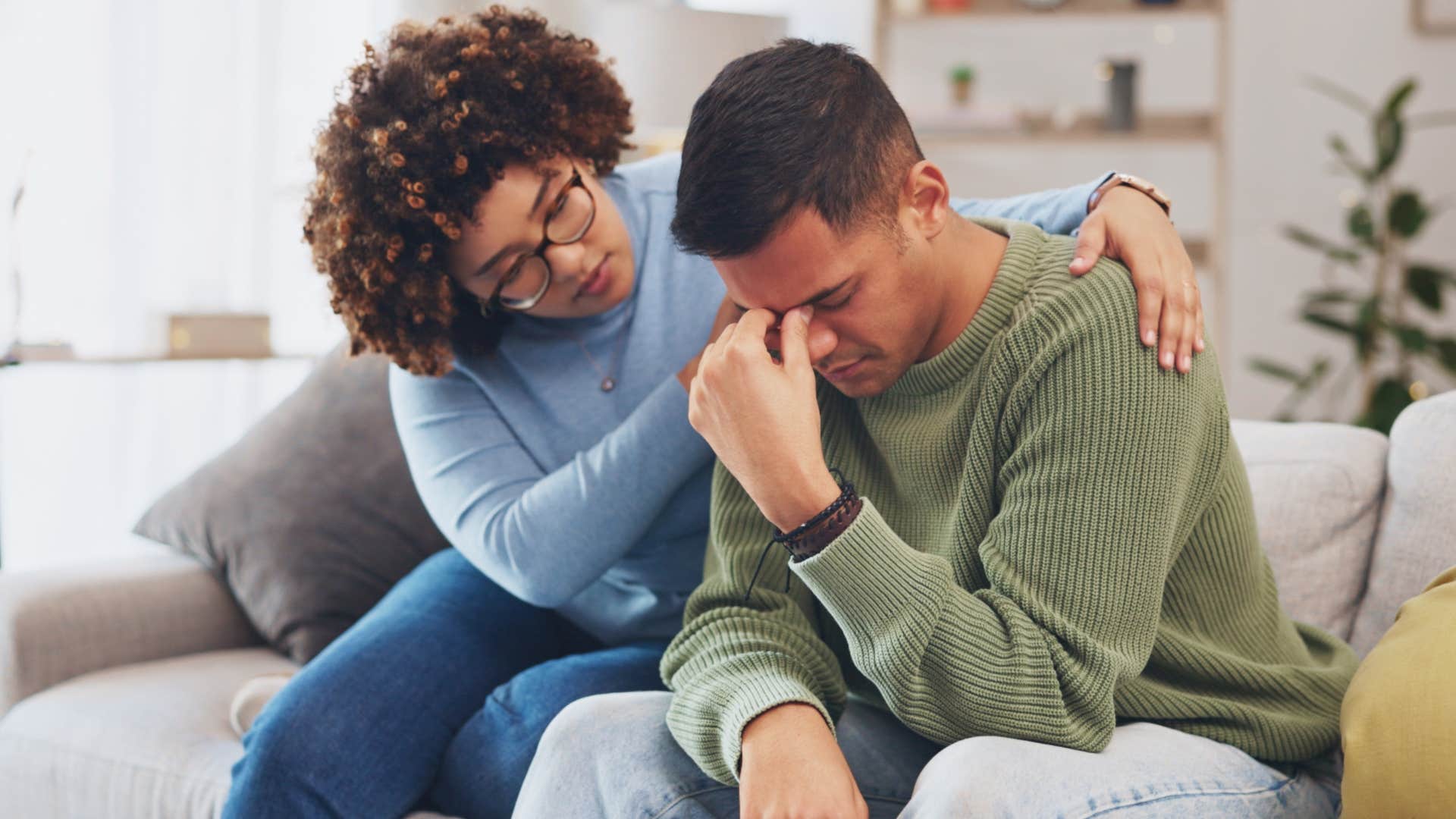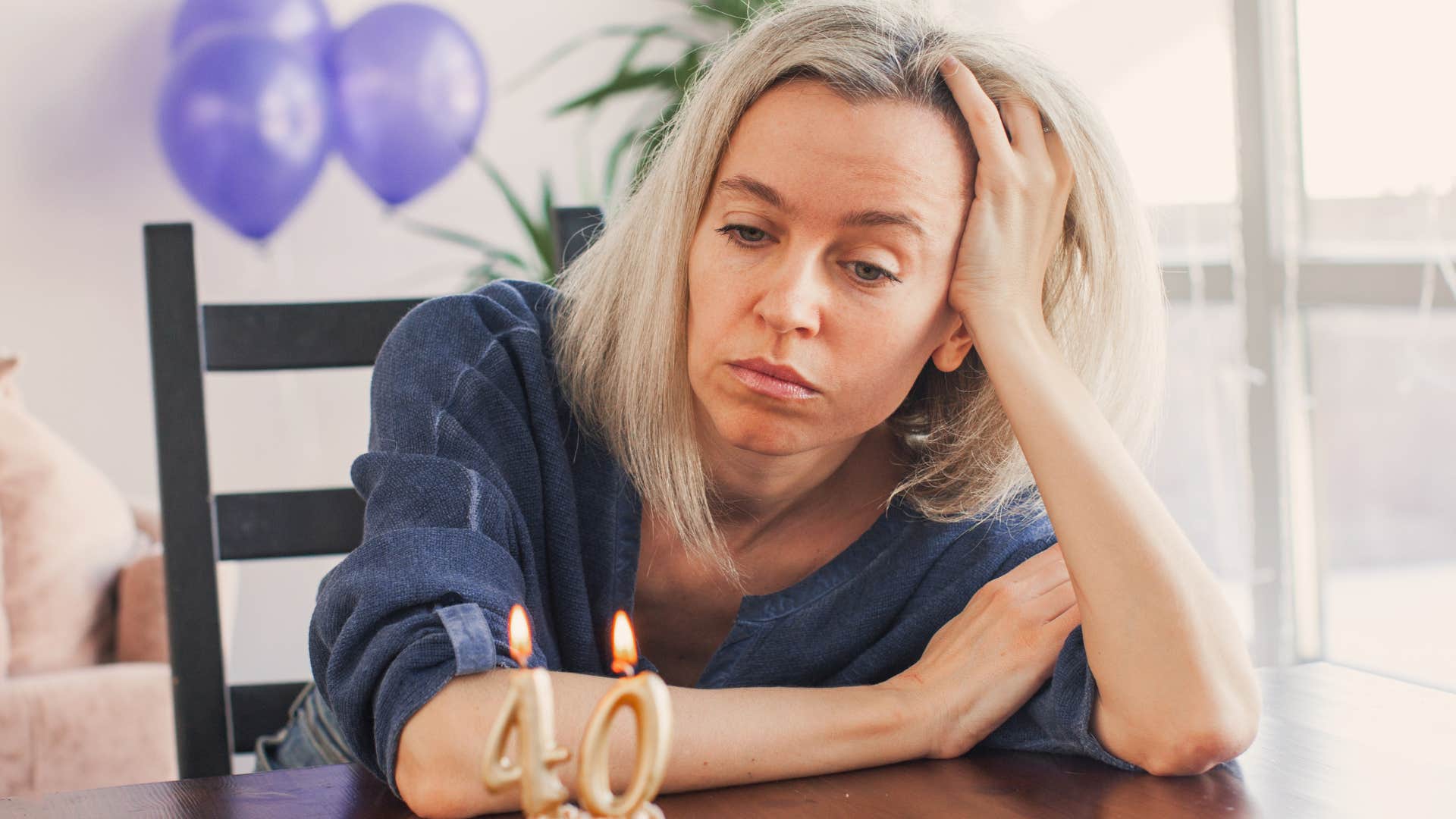11 Ways Good People Accidentally Distance Themselves From Everyone Who Cares
When good people neglect their own needs, they often end up distancing themselves from those who care about them the most.
 nelen / Shutterstock
nelen / Shutterstock Good people always have the best intentions when it comes to how they approach their relationships, yet sometimes they unknowingly create distance between themselves and those who care about them the most. Occasionally, it occurs because one is always putting others first, while at other times it happens because they don't want to ask others for help. These self-isolating behaviors can be a way for them to cope with depletion and stress.
While these distancing habits may seem harmless or even noble, they can have a profound impact on relationships over time. This is because good people downplay their own needs, avoid difficult conversations, or withdraw emotionally to spare others discomfort. Understanding these behaviors is the first step toward healing and reconnecting with the people who matter most.
Here are 11 ways good people accidentally distance themselves from everyone who cares
1. Always putting others first
 Lopolo | Shutterstock
Lopolo | Shutterstock
A good person will often prioritize others' needs above their own, and while many would consider this a selfless virtue, others can notice the toll it takes. Those who suppress their emotions while actively making sacrifices in romantic relationships experience a loss in their well-being and satisfaction. When neglected, they feel as if their own feelings and needs go unmet.
This causes them to distance themselves from the people that they love so that they can avoid being vulnerable. It becomes difficult to hide your suppressed emotions, and you may feel guilty for burdening other people with your struggles. Sometimes putting yourself first is the only way to show others what you will or will not tolerate.
2. Not asking for help
 Dmytro Zinkevych | Shutterstock
Dmytro Zinkevych | Shutterstock
Distancing yourself from everyone who cares about you can secretly be a cry for help. Good people will try to do everything on their own so that they don't burden others with their issues. They might believe that showing their struggles so openly could be considered a sign of weakness. This isolation can make it hard to reach, let alone speak to them and offer support.
What they fail to understand is that being vulnerable shows that you are human, just like everyone else, and those who shame you for it were never really in your corner to begin with. Asking for assistance helps bond people together through struggle, pain, and suffering. While many dislike trauma bonds, the point of them is to help the other person through it, not join them in on the pity party.
3. Downplaying their struggles
 Roman Samborskyi | Shutterstock
Roman Samborskyi | Shutterstock
When good people downplay their struggles, especially when it involves serious trauma, it can make their mental state worse. A study from Belgium found that 17.1% of trauma survivors never told anyone about their experience. Those who did not disclose had significantly lower social support and higher rates of depression. Opening up to someone they trust can help good people overcome their struggles rather than facing them alone.
Sometimes people need the encouragement and knowledge that there are others out there going through the same things they are. Handing them a heartwarming message of support can make a difference. Making it known that everyone goes through struggles and that they shouldn't downplay their experiences might get them to stop living in their shell.
4. Avoiding conflict at all costs
 Nicoleta Ionescu | Shutterstock
Nicoleta Ionescu | Shutterstock
It can be difficult to spot the signs of depression in good friends until they begin to distance themselves from you. They might be trying to avoid some form of confrontation between the two of you in order not to upset you and give you your space. While this may seem kind of them, it can be just as detrimental to their mental health.
Conflict avoidance extends beyond romantic relationships. A study from Pennsylvania State University found that avoiding peer conflict was associated with significantly higher levels of loneliness, social anxiety, and withdrawal. Good people fear hurting others, so they suppress the discomfort. There's only one problem with this. By avoiding conflict, good people unintentionally reveal that their friendships can't handle tension or truth without falling apart completely.
5. Overcommitting themselves
 fizkes | Shutterstock
fizkes | Shutterstock
When good people enter romantic relationships, they do so with the purest intentions, but soon become overwhelmed by the prospect of it all. The responsibility of meeting someone else's expectations can burn them out. Love can feel euphoric, but once the high is gone, reality begins to set in. Soon, they find that they have overcommitted themselves to promises that they now can't keep.
Changing their perspective or viewpoint is the only way to truly care for them. Good people try to please everyone, and by extending that same behavior back to them, they could calm them down a bit. Not everything needs to be perfect, and not every relationship requires you to give more of yourself than is needed.
6. Trying to be perfect
 ArkHawt | Shutterstock
ArkHawt | Shutterstock
Speaking of perfection, good people will strive to achieve it and become frustrated when they fall short. This is due to the high expectations they have of themselves. Nobody is asking them to be perfect, but in their view, they feel they have to be to get the attention and validation that they have been starved of.
When they don't, they tend to self-isolate to protect their egos and feelings of being perceived as a failure. This avoidance reinforces feelings of isolation and can only increase anxiety, which can stop the development of close or supportive relationships. They are essentially self-sabotaging their relationship before even giving it a chance. The need to be perfect just makes them more imperfect, and there is nothing wrong with imperfections.
7. Being too independent
 Dmytro Zinkevych | Shutterstock
Dmytro Zinkevych | Shutterstock
Sometimes good people don't realize they are distancing themselves from people they love because they are so used to their independence. By insisting that they handle everything on their own, they signal to the people who care about them that they do not want or need their assistance. While not asking for help is something they struggle with internally for their loved one, their own independence can make them hesitate to ask or fear an immediate dismissal.
Done too often, and the loved one might bring up how distant or independent they are towards them. This could lead to disagreements and accusations of being cold or distant. The remarkable thing is that they might not even realize they are doing this, so bringing it up might be beneficial for your relationship with a good person.
8. Withdrawing when stressed
 Estrada Anton | Shutterstock
Estrada Anton | Shutterstock
No one should blame good people when they want to withdraw after feeling slightly stressed. After all, spending some alone time to compose and gather your thoughts can be beneficial. However, when it is a constant occurrence, that is where things get a little complicated. It's most noticeable in romantic relationships when one partner is constantly feeling stressed out when in the presence of the other.
This type of anxiety being directed toward the person whom you care for the most can make or break relationships. Social anxiety can harm relationships due to its overwhelming nature and self-isolation. The problem here is that trying not to be a problem or burden to others ends up creating a new problem to solve. This is especially true if your partner is more sociable than you are.
9. Being overly empathetic
 PeopleImages.com - Yuri A | Shutterstock
PeopleImages.com - Yuri A | Shutterstock
What makes people good is their ability to have empathy for others, but when that empathy is too strong, they will distance themselves from others to recharge. It can be rough to want to be the one to help others, only for you to end up being the one who actually needed the help all along. This is because we often project our feelings onto other people. Our wants, desires, and even pain become reflections of how we perceive others.
There is a fine line between being empathic and experiencing burnout. A study from France found that those with higher empathy can help their professional fulfillment, but it can lead to emotional detachment if not managed properly. This imbalance causes good people to frame the world through a black and white lens. Believing that there are those who help others, or those who need to be fixed. It can be a warped view of the world, but it's only because they have been perceived to be good all of their lives, rather than a human being who can make mistakes.
10. Avoiding celebrating themselves
 Gladskikh Tatiana | Shutterstock
Gladskikh Tatiana | Shutterstock
Many good-hearted people struggle with celebrating their own accomplishments, either out of humility or a fear of being seen as self-centered. While they are more than willing to celebrate others, people with low self-esteem tend to be more hesitant to claim success for themselves. Even on their birthdays, they feel as if they shouldn't be celebrated. This causes them to withdraw or even downplay their achievements.
Friends and family who share their successes might feel guilty if they don't reciprocate the joy along with them. Having a low sense of worth can make you your own worst enemy. Celebrating something will seem performative to you, but it's all about where your mindset is at. Those who choose to live in a more positive energy field will radiate that onto others.
11. Fearing rejection or judgment
 Dmytro Zinkevych | Shutterstock
Dmytro Zinkevych | Shutterstock
Fearing rejection is a common occurrence among good people. This fear stems from past experiences where vulnerability was met with criticism or shame. This heightened their sensitivity to sense rejection or even self-sabotage a relationship before it even gets the chance to begin. When people feel a sensitivity to rejection, they tend to be less satisfied in their relationships and experience more jealousy. This type of behavior ruins trust and pushes their beloved away.
This overreaction is often the result of stress and excessive worrying about what the other person is doing rather than focusing on yourself. This causes a spiral of emotions and impulsive decisions that they later regret when they have the time to sit down and really think about what they just did. Good people unintentionally do these things because they have a low view of themselves, and the only person who can help them in these situations is the one person they keep trying to push away.
Sylvia Ojeda is an author who has over a decade of experience writing novels and screenplays. She covers self-help, relationships, culture, and human interest topics.

